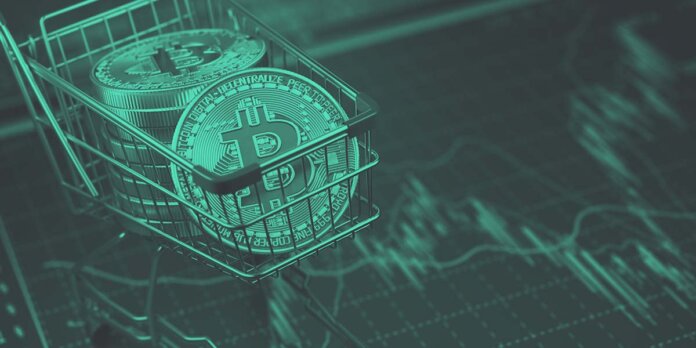We spoke to Stefan Andjelic from Raiffeisen Bank International (RBI) about his views on digital assets for our report. This interview was one of eleven case studies with investors at pension funds, banks, insurance companies and family offices that were conducted via phone call and in addition to the survey that was sent to all professional investors registered in German-speaking countries. While most of our interviewees wished to remain anonymous, Stefan Andjelic and others allowed us to release statements from the interview.
RBI has over 16.7 million customers, more than 46,000 employees, and €152 billion in total assets. Mr. Stefan Andjelic from RBI’s Blockchain Hub accepted to be interviewed by Professor Dr. Alfred Taudes from the Vienna University of Economics and Business for this report. He discussed with us how the digital asset market no longer refers only to Bitcoin, but rather has expanded into a broad array of assets. He also mentioned that as investors are becoming more informed about the potential of this emerging asset class, they are not being as easily persuaded by the negative connotation that traditional media usually attaches to cryptocurrencies.
“As investors are becoming more informed about the potential of this emerging asset class, they are not being as easily persuaded by the negative connotation that traditional media usually attaches to cryptocurrencies. Contrastingly, they also assess the potential that digital assets and blockchain technology in general can bring to society in the long term.”
— Stefan Andjelic, Raiffeisen Bank International
Although RBI is not currently invested, Andjelic feels positively about digital assets. As someone working in the field, Mr. Andjelic sees the potential for digital assets to be offered by incumbent financial players as an alternative investment vehicle that would allow them to create new streams of revenue. From a purely technological point of view, he also believes that digital assets can be a trigger for many traditional fields of finance to improve in the future.
When asked why RBI has not invested in digital assets yet, Andjelic said that the lack of regulatory clarity around what services financial institutions are allowed to offer in this field is still a major barrier. That said, there are still a lot of compliance topics to be clarified in these regards.
Once the regulatory framework related to digital assets is established, either by local jurisdictions or on an EU-level, financial institutions will be able to accurately assess the opportunities in this field and potentially invest in digital assets. On that note, the European Parliament is currently working on a digital assets framework. According to their timeline, in Q4 of this year, a framework should be in place.
Regarding timeline and which types of digital assets RBI would be interested in, Andjelic says, “I believe there is a much higher likelihood that we as a financial institution, once there is a full regulatory clarity, would initially focus on tokenized traditional assets, such as tokenized commodities, stocks, funds, etc. Potentially, we might also decide to offer some of these products ourselves based on both internal business decisions and a market demand.” RBI currently has 1% of their assets under management in alternative assets, which in absolute terms, equals to approximately €1.5 billion.
If RBI were to invest in crypto assets, several key decisions would need to be made. For instance, RBI would need to decide on whether the entity would aim to invest directly and store the digital assets itself, or would do so by teaming up with third-party service providers. In addition, if RBI decides to start offering crypto assets to its clients, then the decision would have to be made whether the bank wants to build the entire infrastructure on its own or to team up with an already existing crypto assets provider
in the market.
One option on how such constellation would work is that the third-party service provider would be connected through APIs to RBI’s infrastructure, while RBI’s banking platform would be the face to its clients. In such a scenario, the digital assets would be stored by the service provider instead of RBI. This would allow RBI to ensure that clients can only buy and sell their digital assets through Raiffeisen banking platform without being able to transfer them outside of the ecosystem. This would help Raiffeisen keep control on whether these digital assets are being used for any kind of illicit activities. RBI did make a successful venture capital investment into Bitpanda GmbH, via the SpeedInvest venture capital fund. Bitpanda is a licensed digital asset exchange operating in multiple countries across Europe.
In addition to Stefan Andjelic, we also interviewed Professor Dr. Michael Hanke from the Stiftung Personalvorsorge Liechtenstein, who allowed us to publish his statements. He brought in a different perspective, as other challenges are relevant for pension funds. This will therefore be the topic of our article in the next week.
This article is an extract from the 70+ page Discovering Institutional Demand for Digital Assets research report co-published by the Crypto Research Report and Cointelegraph Consulting, written by eight authors and supported by SIX Digital Exchange, BlockFi, Bitmain, Blocksize Capital, and Nexo.




